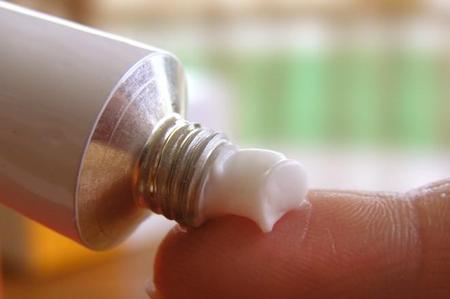Psoriasis Treatment: Medical, Natural and Holistic Treatment for Psoriasis
Many developments in both medicinal and natural psoriasis treatment occurred over the last few decades. The word treatment is key here, as currently no one knows how to cure the disease. Although doctors know all the symptoms and can alleviate them, they do not know why psoriasis develops.
Genetic factors could play a role, as when one family member displays the symptoms, other family members are more likely to do so as well. The immune system might be the main culprit as it is responsible for the growth of new cells and the removal of old ones.
Medical Treatments

Any treatment plan will aim to both interrupt the skin production cycle, which reduces the amount of swelling, and remove the build up layers of dead skin without damaging the base layers. The psoriasis treatment prescribed by doctors falls primarily into three categories:
- Topical – This refers to any skin care cream or ointment that is applied directly to the affected area. When the psoriasis is mild and only affects small patches such as the knees or elbows, doctors prescribe topical products. The most common topical treatments are corticosteroids which are anti inflammatory drugs that repress the immune system and slow down the cell production. Long-term use is harmful, so they are normally used briefly to control a specific outbreak. For more long-term use, vitamin D creams and salicylic acid speed the process of sloughing of any dead skin cells.
- Light therapy – Artificial natural light kills activated T cells in the skin, which are responsible for cell production. Ultraviolet light treats moderate cases of psoriasis where the disease has spread onto larger areas of the body. For lesser cases, a concentrated laser beam is used, which means that the surrounding skin does not become damaged from over exposure. For more severe cases, it is normally used with drugs such as psoralen, which makes the skin more receptive to ultraviolet light.Near Infrared Heat Lamp Floor Model(Heat Therapy & Light Therapy) 110V. including Bulb + 6MO. WARRANTY, Made in Korea
- Medicines – The final branch of treatment works internally and this type of treatment is offered when nothing else has provided relief. Drugs such as retinoids and methotrexate suppress the immune system and slow the production of new cells. However, anything that alters the immune system also makes the patient much more susceptible to other diseases and infections, so this option is s a last resort.
Health care professionals must prescribe all these therapies.
Psoriasis Treatment Home Remedies
For patients with patches of psoriasis, home remedies may be a simpler, less intrusive and an overall healthier option.
- Coal tar – This is the longest standing topical treatment and does provide relief from inflammation, as well as promoting the loss of dead skin cells. It is incredibly messy and very hard to get out of clothes and linens. It is sometimes used with a light therapy regime.
- Sunlight, read my helping dead sea experiences - Sunlight naturally contains ultraviolet light, which breaks down cell production, and makes a great treatment in small doses. However, over exposure can cause damage to the deep layers of skin, so psoriasis sufferers need to consult their doctor about how long they can spend in the sun.
- Moisturizers – Any product that helps dry skin will help psoriasis, but some contain ingredients that patients should use cautiously as these can irritate infected areas and cause further inflammation.
Getting the right treatment is important, and patients will normally find a treatment that works for them through trial and error with their doctor. It may also be the case that a treatment that worked previously no longer works, and in these cases patients should consult with their doctor immediately.
More about Treatments for Psoriasis
Sitemap in alphabetical order
Psoriasis Treatment, more to read about psoriasis medications
 Psoriasis en la pierna
Psoriasis en la piernaPágina de inicio
Mapa del sitio
Mapa del sitio en orden alfabético
